Water bills: how to understand them, reduce them and what to do if you’re struggling to pay
When it comes to water bills, knowing what and how you’re charged is crucial to keeping your household bills under control

If asked, would you know how much your water bill is? Water bills are one of those utilities that households don’t think too much about, especially as you can’t save by switching providers. But amid the cost of living crisis, understanding how much you pay for your water and how much you use could help to identify ways you could cut your usage and, if you have a water meter, reduce your bill.
If you don’t already have a water meter, which measures how much water you actually use and charges you accordingly, now might be the time to consider one to see if you can reduce your water usage and lower your bill.
Dr Nathan Richardson, head of policy and strategy at Waterwise, says: 'As the saying goes, knowledge is power and knowing how much water you are using is the first step towards saving water. As households take action, they will be able to see what it means and enjoy a direct benefit in your water bill.
'Also, the new smart water meters provide much more useful hourly data that can help identify if you have a leak in your home – one of the biggest challenges the water sector faces.'
Water bills explained
Knowing how you’re charged by your water supplier and understanding your bill is crucial. Unlike gas and electricity, you don’t have any choice about which company supplies your water. You’re stuck with the supplier in your area.
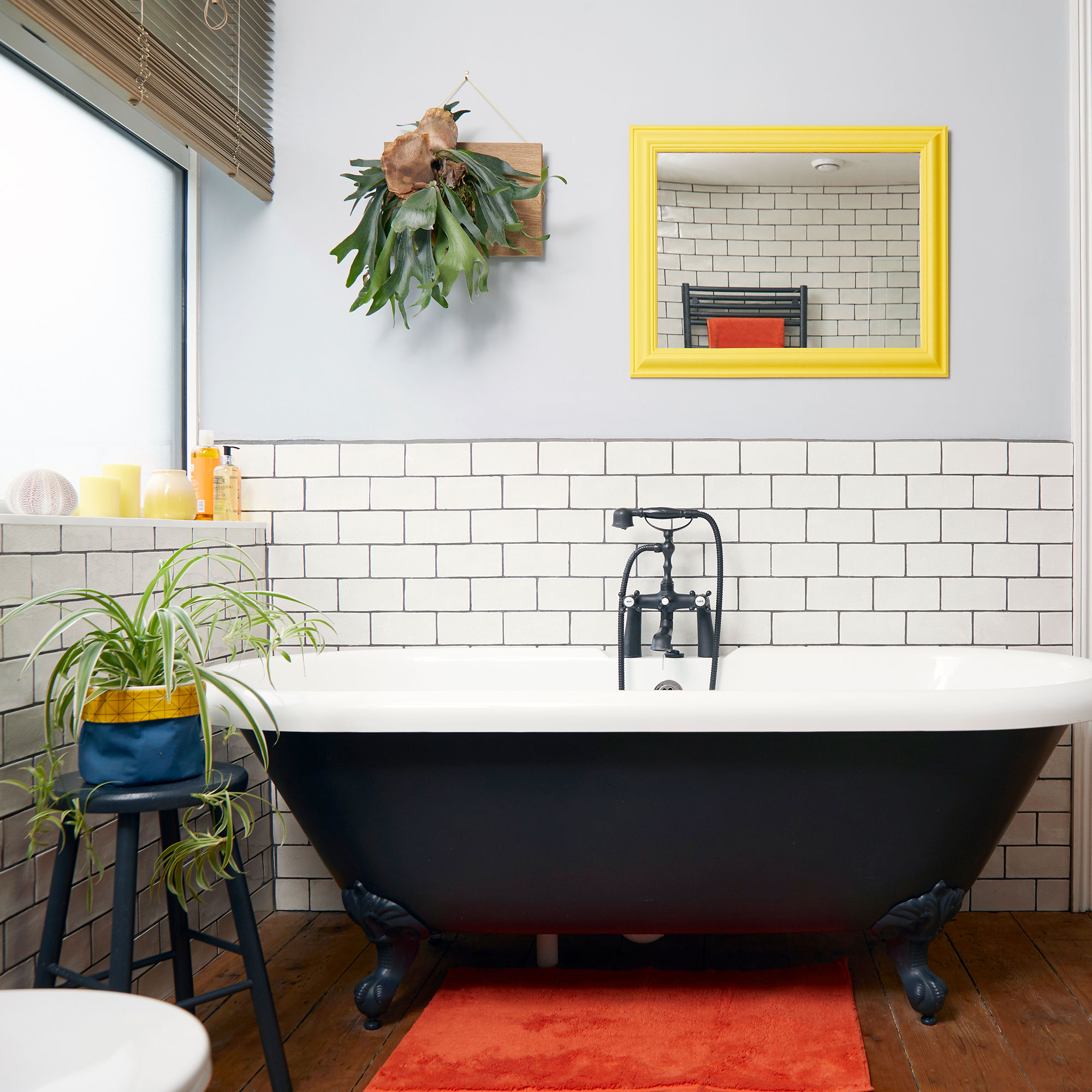
Generally speaking, the service that water companies undertake for you is to deliver fresh water to your property and take any waste water (or sewerage) away.
The industry is regulated by OFWAT which makes sure companies bill their customers fairly. Most customers, unless they’ve requested otherwise, should expect to receive a water bill every six months.
When it comes to usage, it can be tricky to know what ‘normal’ water usage, and the average water bill is, and what might be deemed to be excessive.
According to Waterwise, the average water used per person per day is 142 litres in England and Wales, 165 litres in Scotland and 145 litres in Northern Ireland. How much this will cost you depends on where you live.
As with other utilities, the person (or persons) who are the named account holders and appear on the bill will be responsible for making sure the bill is paid.
How are water bills calculated?
A spokesperson for trade association Water UK says: 'If you have a water meter, your water bill depends on how much water you use. Your bill will usually be made up of a fixed charge (or ‘standing charge’) and a volumetric charge for your water and wastewater services. The standing charge is a fixed annual fee, and the volumetric charge is based on how much water you use.'
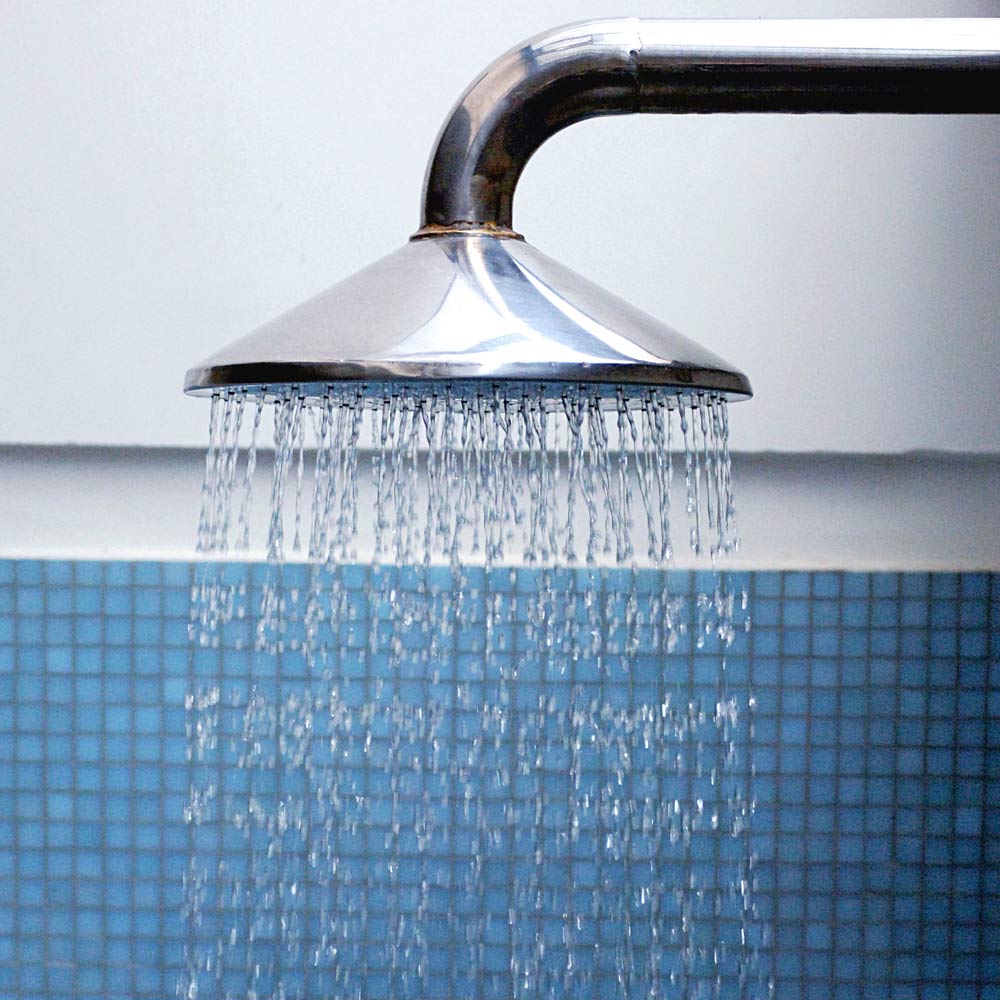
Standing charges cover costs which don’t vary with usage, such as reading meters and sending out bills. Most homes now have a water meter. They are installed in all new properties or where a homeowner has opted to have one fitted.
'If you don’t have a water meter, your bill is not based on how much water you use. Your bill will usually made up of a fixed charge (or ‘standing charge’) and a charge based on the rateable value of your home,' explains Water UK’s spokesperson.
The ‘rateable value’ of your home also determines your council tax. Those values were frozen in 1990 and can’t be appealed. In an unmetered estimate, your bill will be based on both the rateable value of your property and how much water the average household of the same size and in the same location uses.
If you’re being charged based on the rateable value of your home, you have the option to switch to a water meter free of charge. 'If you don’t have a meter, you might be able to save money on your bill if you get a meter installed,' says Water UK. 'Your water company can advise you if you’re likely to be able to save money, and the consumer watchdog CCW has a calculator on its website.'
As a general rule of thumb, if you have more bedrooms than people in your home, you’ll save money by switching to a water meter. If you get a water meter installed but find it doesn’t save you money, you have up to two years to switch back to unmetered charges.
What should water bills cost?
The main factor that determines your water bill is the number of people in your household. The presumption being the greater the number of people, the more water is likely to be being used.
With a water meter, you can easily see how much water you are consuming and the direct effect that has on how much you pay. However, it’s a little trickier to gauge what you should be paying if your property is unmetered.
Using supplier Thames Water as an example, the bill for a home based on its rateable value for 2022-23 is as follows.
If a property had a rateable value (RV) of £100, the clean water rate is 112.68p and wastewater rate 76.54p. So, the annual bill would be calculated as follows:
RV of £100 x £1.1268 = £112.68 for water
RV of £100 x £0.7654 = £76.54 for waste
Fixed charges of £39.05 for water and £62.81 for waste
So, the total bill would be £291.08
Paying your water bill
The simplest way to pay your water bill is to set up a direct debit. However, you can also choose to pay directly via your online account. Most major credit or debit cards are usually accepted.
Just log in to your account page where you can keep track of your usage, previous statements and payments. There will usually be a section called ‘Pay your bill’. Click on this and fill in your card details.
What happens if I don’t pay my water bill?
If you are a domestic (non-business) customer, the water company cannot, by law, cut your water supply off if you don’t pay your bill. But just like any other unpaid debt, if you fail to pay the water bills, it will impact negatively on your credit score.
companies can also chase you for payment using a variety of methods. These include contacting you by phone, referring you to a debt collection agency or taking you to court. In extreme cases, bailiffs could be ordered to your home.
If you’re looking for specific help with bill arrears and problems with paying your water bills, Citizens Advice has a section dedicated to this.
What are backdated water bills?
There are a number of reasons why you could receive a backdated water bill. One such reason could be down to you falling behind with your bill payments.
Another could be that the property you’re in has become newly occupied, or has changed configuration or use – i.e. what was previously one large house has now been split into flats with more occupants than there once was.
Backdated water bills can also occur when the water company wasn’t previously aware of your property or has simply made a mistake and forgotten to bill you.
If you receive a backdated bill, you should get in touch with the water company to discuss it. If the bill is the result of a mistake on the part of the water company, negotiate a way of paying back the amount owed as part of a reasonable payment plan.
Why is my water bill so high?
If you look at your bill and it’s significantly more than you would expect, then it’s time to have a good look at the breakdown of your bill and your water usage habits.
The average household (2.2 people) in the Severn Trent region uses 286 litres per day at an average cost of £386.9 per year – that works out to £1.06 a day.
Check for water leaks
If your usage habits don’t realistically reflect your water consumption on your bill, then it’s time to check whether you have a leak. Leaks can occur both inside and outside a property.
One way of checking whether you have a leak problem is to turn off all the taps in your home, including the internal stop, and take a reading from your water meter. Then wait – the longer the better. You want to see if the water meter reading changes over time without you having used any water within your home.
If the reading goes up, get in touch with your supplier and they’ll talk you through the next steps. These might include a visit from the suppliers’ engineering and works team.
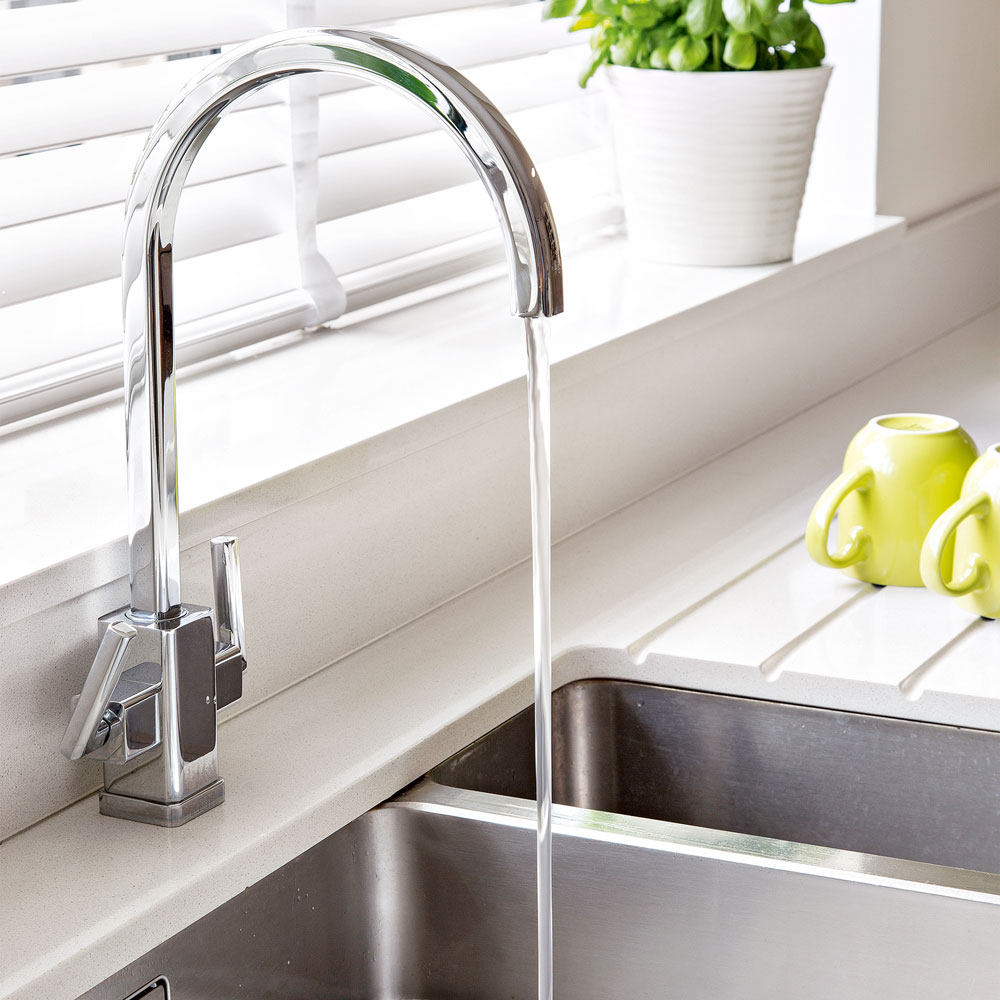
How can I reduce my water bills?
If you have a water meter, reducing the amount of water you use will both help you save money and be good for the environment too. Even if you’re not metered, using hot water more wisely will help save on energy bills.
Major savings can be made to water bills if households adopt some simple changes. These might include the following:
Switch from baths to showers
You can improve your consumption even further by taking shorter showers. An aerated showerhead is also one of the best energy-saving products worth investing in.
Phil Foster, CEO of Love Energy Savings, says: 'Replacing an inefficient shower head with a water efficient one could save a family of four around £55 on their gas bill and £45 on their water bills providing they have a water meter. That’s a total saving of £100.'
Collect rainwater
'A butt that siphons rainwater from your downpipe is a good way to water the garden without turning on the tap,' says Matthew Jenkins, energy expert at MyJobQuote, 'Utility companies and local councils often have subsidised water butts available for you to buy at cost price.'
Turn off taps
You don’t need to have water running unnecessarily when brushing your teeth. Get in the habit of leaving the tap off until you rinse. The same goes for washing dishes – use a basin filled with water instead of a constantly running tap.
Upgrade your toilet
'A toilet with a dual flush and smaller cistern will use much less water for flushing,' says Matthew, 'If you’re not able to replace your toilet, then pop in a cistern bag or block to reduce its capacity.'
The makers of Hippo the Water Saver claim that every time you flush the loo, a Hippo will save 3 litres of water (available to purchase for £4.99 on Amazon).
Water-saving devices
Many water companies offer customer free water-saving devices. These might include shower heads, tap inserts and garden hose nozzles which all to help regulate water flow, and cistern blocks or bags to put in the loo (as above).
Can I get compensation if my water is cut off?
Water companies have a legal obligation to follow certain standards. That includes interruptions to water supply and loss of pressure. If you experience an interruption due to a burst main water pipe, your water company has 12 hours after being made aware of the problem to reinstate the supply.
Should the issue relate to a strategic main pipe, they must sort the problem within 48 hours. If they don’t, you’re usually entitled to compensation of £20 for the first 24 hours. Then £10 for each subsequent 24-hour period where interruption continues. And if payment isn’t made within 20 days, you are entitled to a further £20.
Levels of standards vary between companies. Some companies offer higher standards than the minimum requirements as set out by the water regulator OFWAT. Check with your own supplier’s website to see what their specific policies are regarding compensation for supply interruption.
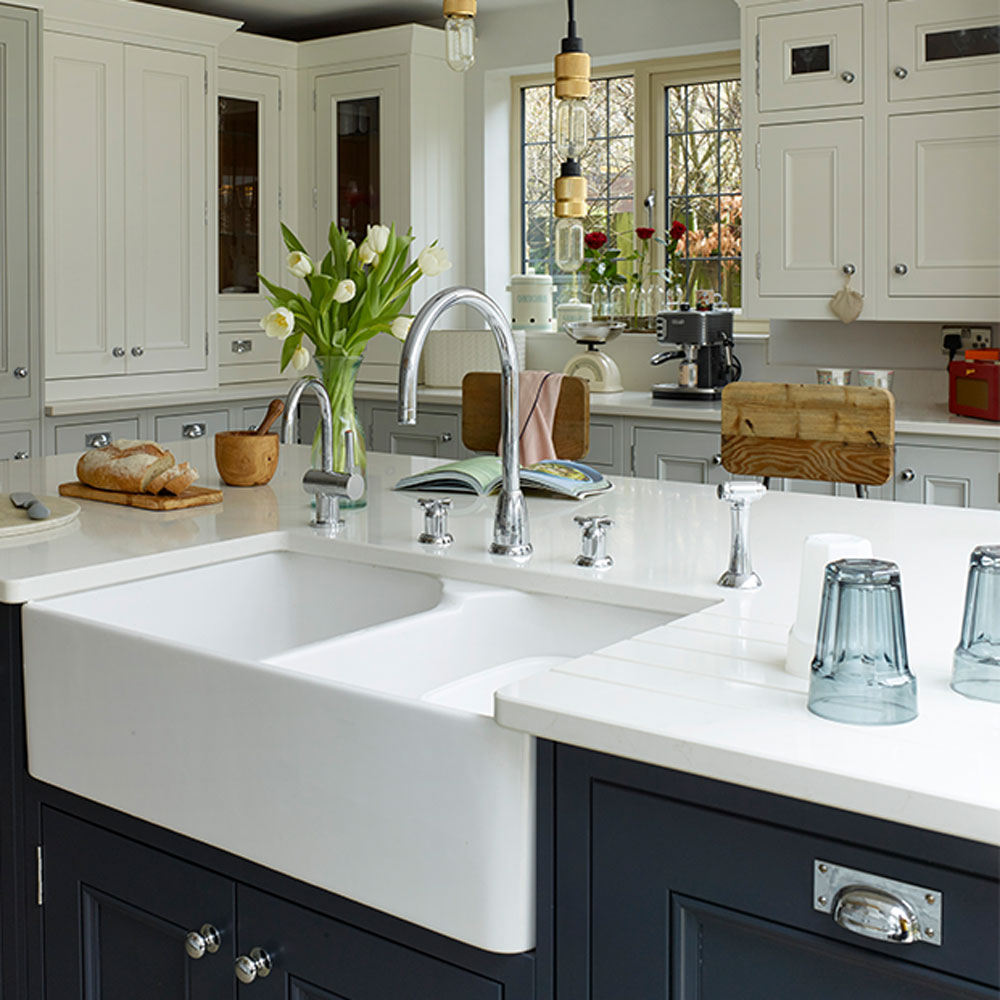
Should I get a water meter?
Getting a water meter fitted could mean significant savings on your bills. As mentioned above, if you have more bedrooms in your home than people living there, you should definitely consider a water meter if you don’t have one already.
What if I can’t have a water meter fitted?
There are some situations where it won’t be possible for a home to have a water meter fitted.
A Severn Trent spokesperson explains: “This can be as a result of operational difficulties such as the property being on a shared supply, there being electrical or other cables too close to where we would need to work or just not enough space externally.
'There are also occasions where a council may not want us installing external boundary boxes if they have just completed pavement renovation work or have other projects (such as fibre broadband) carrying out works in the local area.'
If you’ve applied for a meter and your water company can’t install it, you can be billed on an assessed household charge (AHC) instead. This charge is estimated on what you would pay if you had a water meter fitted.
Assessed charges can work out cheaper than being billed on the rateable value of your home if you have more bedrooms than people in your home.
Where is a water meter housed?
The location of your water meter depends on the age and location of your property. Recently built homes may have the water meter located under the kitchen sink or perhaps in a garage. More commonly though water meters are to be found outside, near to your property.
Check any path leading to your front door, your driveway or on the pavement for a small metal or plastic cover. These can typically be identified by having the name of your water supplier written on them or by being marked with the word ‘water’ (or just the letter ‘w’).
How do I get my water meter reading?
You might need a screwdriver or similar tool to open the cover. When you lift the lid or cover, you might find that there’s an inner protective layer made of polystyrene or foam rubber. It’s there to protect the meter from frost and debris. Remove this and you’ll find the meter below. But don’t forget to put this layer back once you’re finished taking your reading!
When reading the meter make sure that it is free of any dirt or water so that the digits are clearly visible. The display itself can be digital or mechanical. They both do the same thing – showing how much water you have used in cubic meters (m3).
For the purposes of your reading, you should only take note of the numbers before the decimal point (if you have a digital meter). If you have a mechanical meter you should only take note of the black digits – ignore the numbers coloured red.
You may want to take a photo of your meter on your phone at the time of taking a reading. The photo will have a date and time associated with it on your phone – which could be useful if you have a dispute and need to refer to it later. You can then submit your meter reading online via your account page or through a smartphone app.
What is a smart water meter?
A smart water meter automatically tracks the amount of water you’re using in real time. This allows you to keep an eye on your consumption. It also allows you and the water supplier to monitor any leaks you might have at your property.
Water suppliers usually calculate bills on a six-monthly or yearly basis – with a smart meter you can see what your usage is at any one time via a portable display linked to the meter or via a smartphone app.
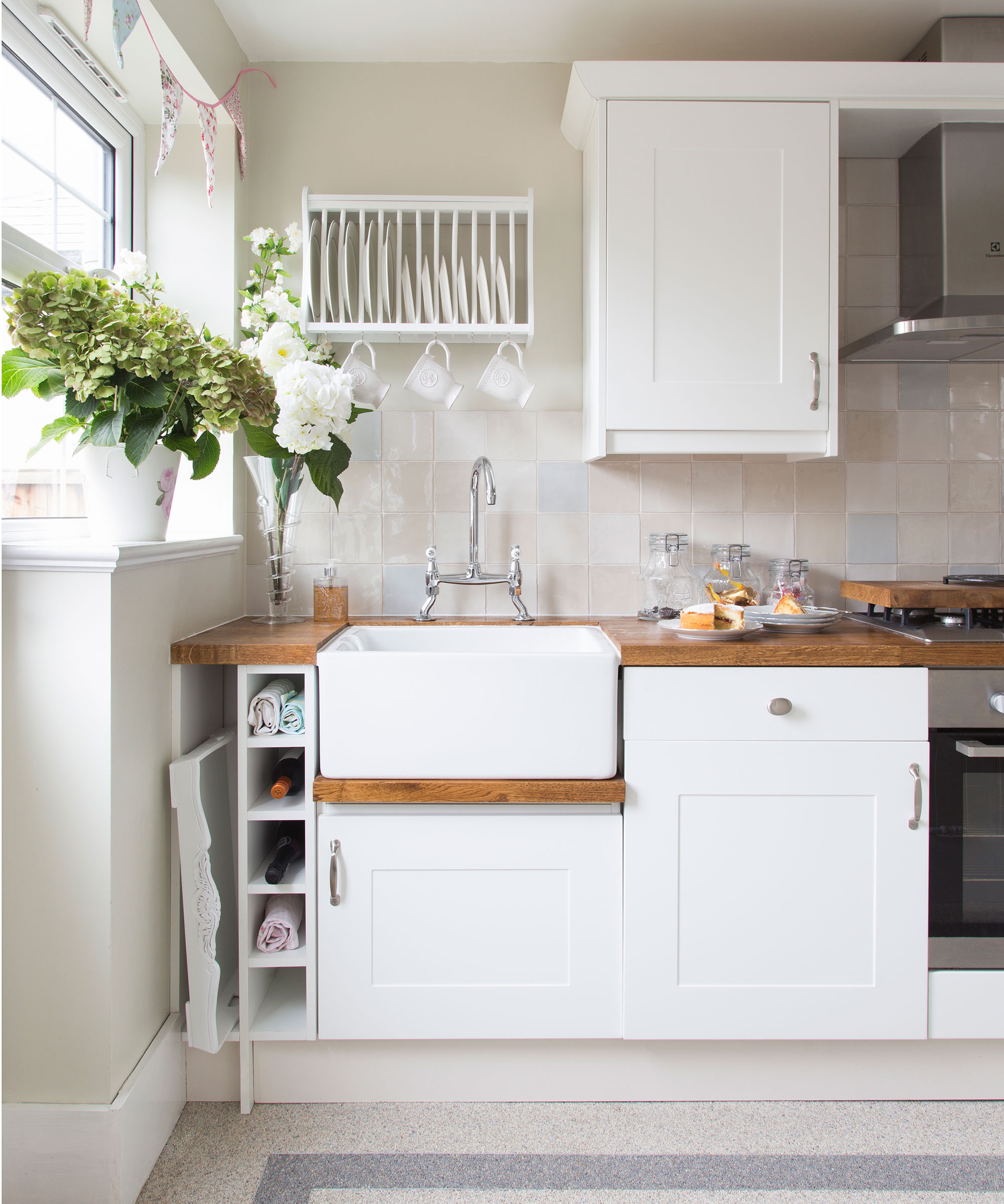
Can I get help paying my water bills?
Water companies have several schemes to help customers who find themselves struggling to afford their bills. These include social tariffs which provide reduced bills to certain households on low incomes.
Severn Trent says: 'We know this is still a challenging time for many of our customers, especially for those whose circumstances have changed during the pandemic. That’s why we have a number of schemes available to support customers who need a bit of help with their bill. Whether it’s financial help, a more personalised service, or just a bit of extra support, we’ve got lots of options available to help those who may need it.'
Help from Severn Trent includes the Severn Trent Trust Fund which helps customers who are unable to meet the cost of water charges. Another option is The Big Difference Scheme which can offer a reduction of water bills to any Severn Trent customer with a household income below £16,385. Other water companies run similar schemes.
What is the WaterSure Scheme?
WaterSure is offered by all water companies. It’s a scheme which helps people with their water bills, but there are a number of qualifying criteria. Top of the list is that you need to have a water meter fitted. You must also be on benefits and need to use a lot of water either for medical reasons or because your household has a certain number of school-age children.
If you get help through the WaterSure scheme, your water bill will be capped. This means you will not pay any more than the average metered bill for the area your water company deals with. A list of who qualifies can be found via Citizens Advice.
How do I apply for the WaterSure scheme online?
Applications for the WaterSure are done through your water supplier. Head to your supplier’s website and look for the section that deals with getting help paying your bills. There, you should be guided through the steps and told which various pieces of documentation you’ll need to support your claim for assistance.
All figures correct at time of publication.
Get the Ideal Home Newsletter
Sign up to our newsletter for style and decor inspiration, house makeovers, project advice and more.

Ginevra Benedetti has been the Deputy Editor of Ideal Home magazine since 2021. With a career in magazines spanning nearly twenty years, she has worked for the majority of the UK’s interiors magazines, both as staff and as a freelancer. She first joined the Ideal Home team in 2011, initially as the Deputy Decorating Editor and has never left! She currently oversees the publication of the brand’s magazine each month, from planning through to publication, editing, writing or commissioning the majority of the content.
-
 Will a conservatory add value to your home and how can you maximise it?
Will a conservatory add value to your home and how can you maximise it?This is what the pros say
By Amy Reeves
-
 I’ve been looking for a new signature scent for my home and The White Company's new fragrance is the exact summer holiday smell I needed
I’ve been looking for a new signature scent for my home and The White Company's new fragrance is the exact summer holiday smell I neededSantorini smells fresh, summery and sophisticated
By Kezia Reynolds
-
 How to remove algae from garden walls in five steps – and the cleaning product experts rave about for tackling it fast
How to remove algae from garden walls in five steps – and the cleaning product experts rave about for tackling it fastExperts share their top tips for getting garden walls algae-free
By Katie Sims